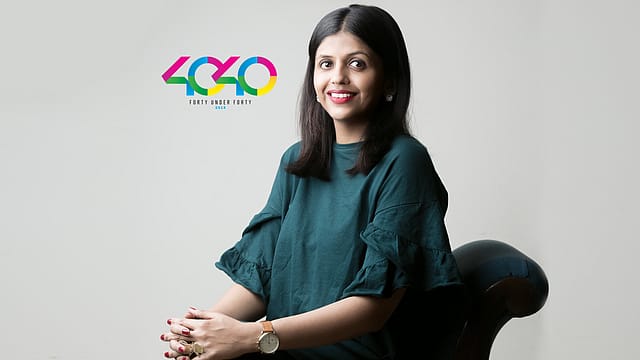Upasana Makati: Making print accessible
ADVERTISEMENT

“It was one of those nights when you ponder about the day that went by,” says Upasana Makati, looking back at what prompted her to start White Print, India’s First English lifestyle magazine in Braille. Last week, the 29-year-old took the magazine to the next level, making it available at Trilogy bookstore in Mumbai. She plans to take it to other independent bookstores soon.
White Print was born in 2013 when Upasana began her day with a generous newspaper read, and ended it with a thought “what do the visually impaired start their day with?” This question stayed with her for long enough to start visiting schools for the visually impaired, and discover that there was nothing substantial for them to read.
The monthly 64-pager printed at the National Association for the Blind, Mumbai, carries articles from politics to Bollywood to sports. Mumbai-based Upasana has tied up with Caravan magazine, which contributes its political columns—the likes of senior journalist Barkha Dutt write for the magazine every now and then.
Ahalya Momaya, co-founder of Trilogy says, “We were shocked to know that there are almost no inclusive bookshops in Mumbai that stock books in Braille. We need to change that. It’s an honour to be part of her journey that affects so many readers who deserve more attention and lots more books. We look forward to building our collection of books in Braille.”
Upasana adds, “Our vision is to see a Braille section in every bookstore. We need to see inclusion in education, leisure activities, infrastructure and so much more.”
With a subscriber base of 350 and growing, White Print is the window to the world for the blind. White Print has revived Braille literature in a big way and also pioneered a way for Braille advertising. Fabric group Raymond Limited was the first to give a five-page advertorial in the first issue. Coca-Cola, Tata Group, Vodafone, Aircel and Mahindra followed suit.
“It was difficult to convince corporates to advertise with us as the concept was non-existent in India. Advertising comes from their marketing budget, and not their CSR budget. That was a fundamental change we had to bring,” explains Upasana.
For Rs 360 per month, the visually impaired are now able to read themselves without depending on audio media or anyone else to read it out to them. Upasana’s challenges have been very “interesting” as soon as she decided that it’s going to be for-profit. “We wanted to break free from the charity notion related to disability. I had this notion that if I give it for free, they will stop valuing the product,” says Upasana, who is also working to expand poly-Braille technology (permanent dots and tactile outlines of images) in books to be used by primary schools for the visually impaired.